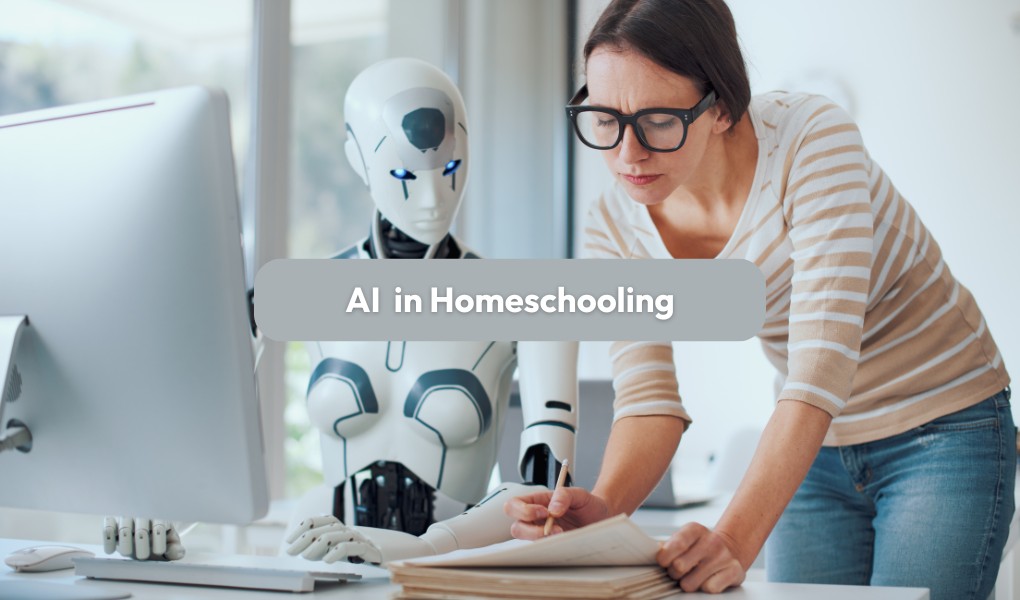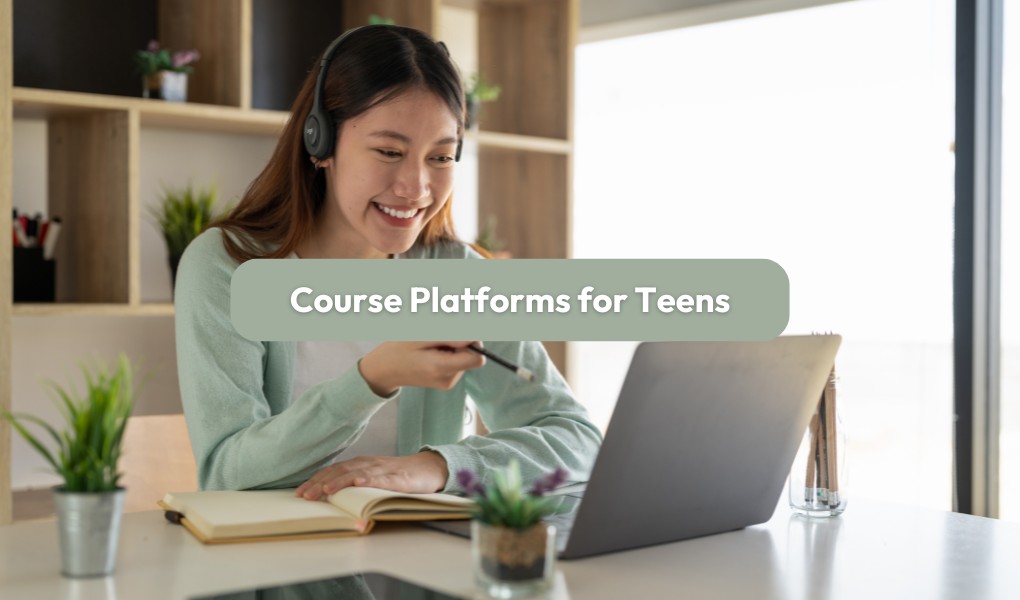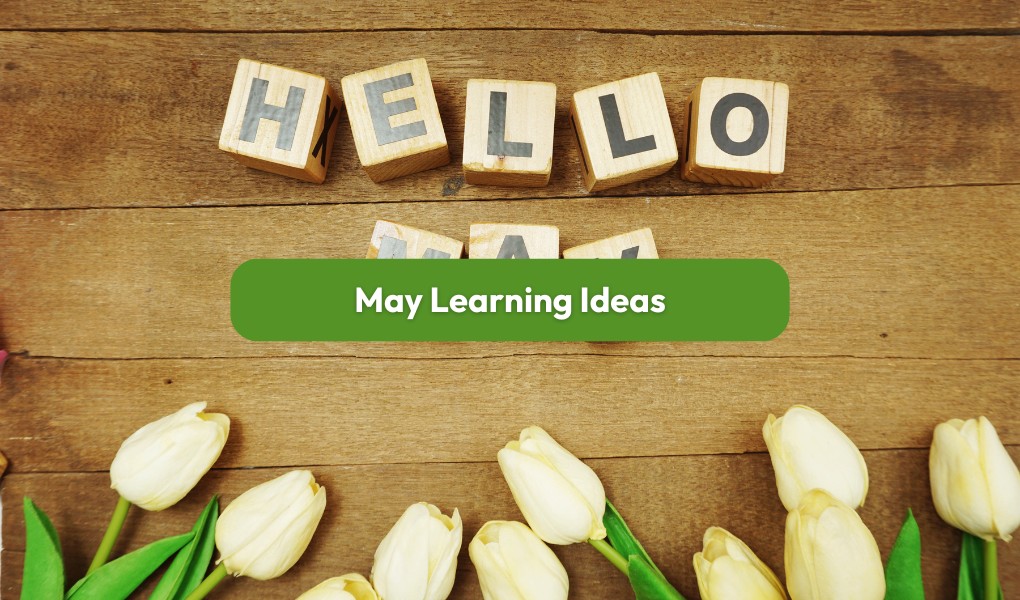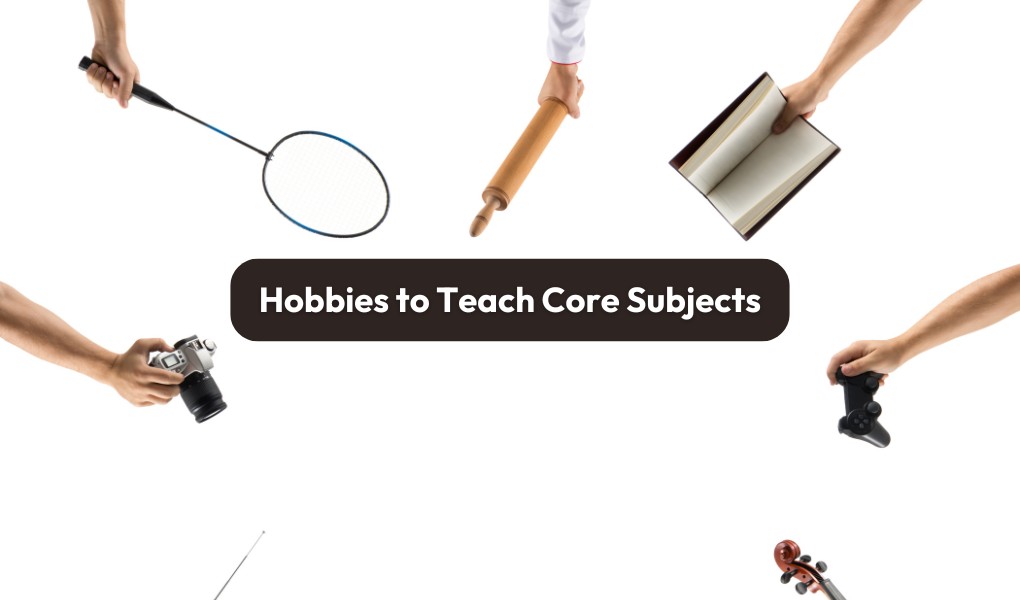If you’re interested in unschooling but know very little about it, this guide will help you to understand everything you need to know about unschooling, including how to unschool, the benefits of unschooling, and more!
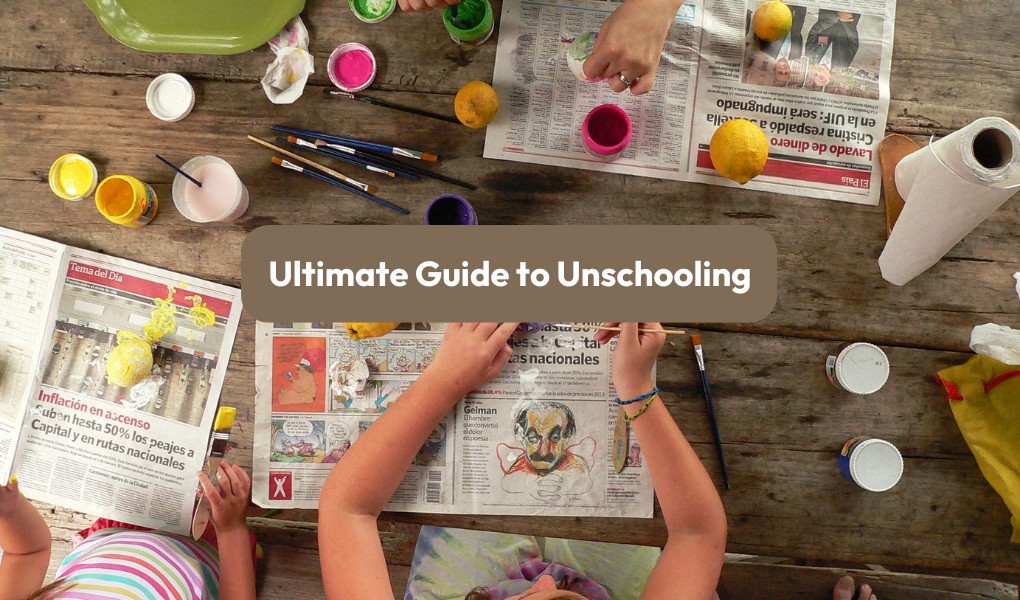
Unschooling was something I knew very little about, but I instantly knew it was a style of home education that I wanted to try with my daughter. Everything about it just aligned with our philosophy, and diving into it has proven to be the right decision for our family.
If you’re interested in unschooling but know very little about it, this guide will help you to understand everything you need to know about unschooling, including how to unschool, the benefits of unschooling, and more!
Contents
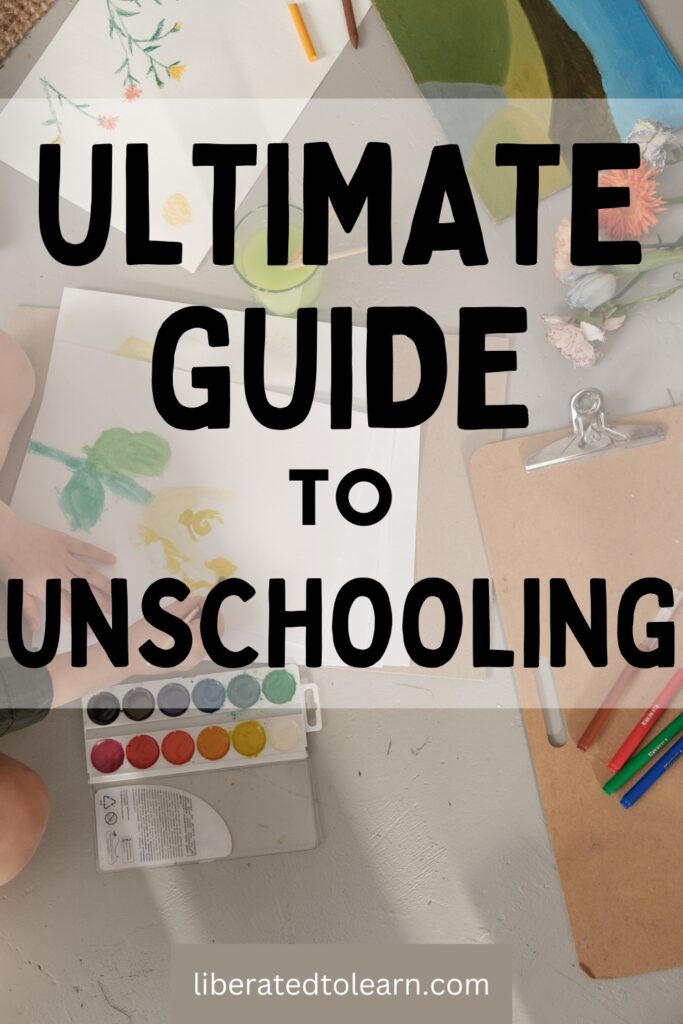
What is Unschooling?
Unschooling can be summed up quite simply: it is where children follow their hearts, learn about their own interests—and also from them—and the natural experiences that life throws at them. It is far from a traditional approach where children are expected to attend formal classes and follow a set curriculum that they have no say in.
Unschooling is also a way of ‘unlearning’ everything about school and its principles. This goes for both children and parents.
Instead, an unschooled child is able to follow their passions, explore curiosities, and learn at a pace that suits them. The philosophy behind unschooling is that children are natural learners, and when given the freedom to choose what they want to learn, they develop a genuine love for knowledge.
Unschooling doesn’t impose academic schedules, tests, or grades, but instead fosters learning through everyday activities like playing, socialising, travelling, and engaging in hobbies. Instead of being ‘teachers’, parents often take on the role of facilitators. They provide the resources, opportunities, and guidance but without imposing strict rules or guidelines.
When a family chooses to follow an unschooling approach, they choose both a life of learning and learning about what life can offer them. Some of the biggest lessons are learnt through the discoveries we make and most of those discoveries come from experiencing the world and tackling its challenges.
But there is still so much more to unschooling, and it’s different for every family. Some families may have a bit of structure to their unschooling day, whereas others may be entirely flexible and go with the flow.
Unschooling isn’t just something that children do. Adults do it, too. Even without realising. We follow our own interests, ask questions and then pursue the answers. We all do it naturally.
What can unschooling be summarised as?
- Natural learning
- Unlearning everything from school
- Making own decisions and having freedom of choice
- Learning about what’s important
- Following interests
- Creating stronger familial bonds
Is Unschooling Legal in the UK?
Yes, unschooling is completely legal in the UK. It’s a form of home education and the law allows parents to educate their children at home under the Education Act 1996, which states that education must be “suitable to the child’s age, ability, aptitude, and any special educational needs they may have.”
Families are able to choose educational approaches like unschooling and they do not have to follow a formal curriculum. Unschooling allows children to create their own curriculum or simply enjoy learning from life experiences and their interests.
What’s important to remember is that local authorities can request information to ensure that your child is receiving a “suitable” education. Whilst you don’t have to provide any evidence of work, you should be able to demonstrate and detail how your child learns. This could be as simple as the activities and resources they engage in, a skill they’ve mastered, and the accomplishments they’ve made over time.
How Do I Unschool?
Unschooling is about trusting your child to take control of their education. This doesn’t mean they will run riot or not do anything. Children are naturally curious and they want to learn. But they’d rather learn about things they are interested in, and unschooling gives them the freedom and choice to do so.
These tips are especially for parents/carers! Often we need to know how to unschool just as much as our children. Once we know how to help them, it makes unschooling a lot easier and more fun.
1. Follow your child’s interests
The most important step to understanding unschooling is to follow your child’s interests. When you observe what your child is naturally curious about and what matters to them, you can provide them with the opportunities and resources to support them and their exploration.
Children are going to want to learn what they are interested in, rather than being forced to learn something they never would have given a second though to. You can always make suggestions and introduce your child to different topics, activities and hobbies, but ultimately it’s best to follow their lead.
2. Facilitate, don’t teach
Unlike with traditional education, there doesn’t need to be any formal teaching and you don’t need to ‘become’ the teacher once you start home educating. Unschooling is about aiding your child’s education naturally. This happens by having discussions, asking questions, and helping your child to find their own resources based on what they’d like to learn.
You don’t need to impose a rigid schedule or have structured lessons. Unschooling is far from a classroom-style of learning, and you’ll find that you don’t need to be the teacher when life is already full of lessons.
3. Engage in real-life experiences
The world is the classroom, after all. And engaging in real-life experiences is one of the most natural ways to learn and make new discoveries. The things that you do in your everyday life, such as cooking, shopping, travelling and general conversations are all learning opportunities for your child.
4. Be Flexible and adapt
Unschooling is about embracing flexibility and understanding that learning can happen at any time and anywhere. It’s also a good idea to adapt with your child. We all know that our children’s interests can and will change, which means their learning needs will change too. Just be open to trying new things and adapting your normal routine to fit with their evolving interests.
5. Embrace the unschooling journey
When you choose to unschool, you are choosing an alternative lifestyle as well as an education for your family. It’s far from the academic way of learning that many take for a ‘normal’ education. In fact, it extends beyond that and encourages children to love learning for life.
As with anything, there will still be ups and downs and it will take time to adjust and figure out what works. That’s why embracing the journey and trusting the process will see you through any struggles.
Extra Unschooling Tips
- Don’t feel pressured to do things a certain way or follow traditional school expectations.
- Don’t compare yourself to other unschooling families — everyone’s journey is different!
- Keep a record of work or create a portfolio to assess progress.
- Find your unschooling community
- Support your child’s curiosity by answering their questions, providing resources, and offering ideas and research.
- Normalise failure as a way of learning.
- Lead by example — show your lifelong love of learning.
- Use technology as an alternative learning tool.
Before we dive into the steps to unschooling, you might be interested in checking out some beautiful unschooling quotes!
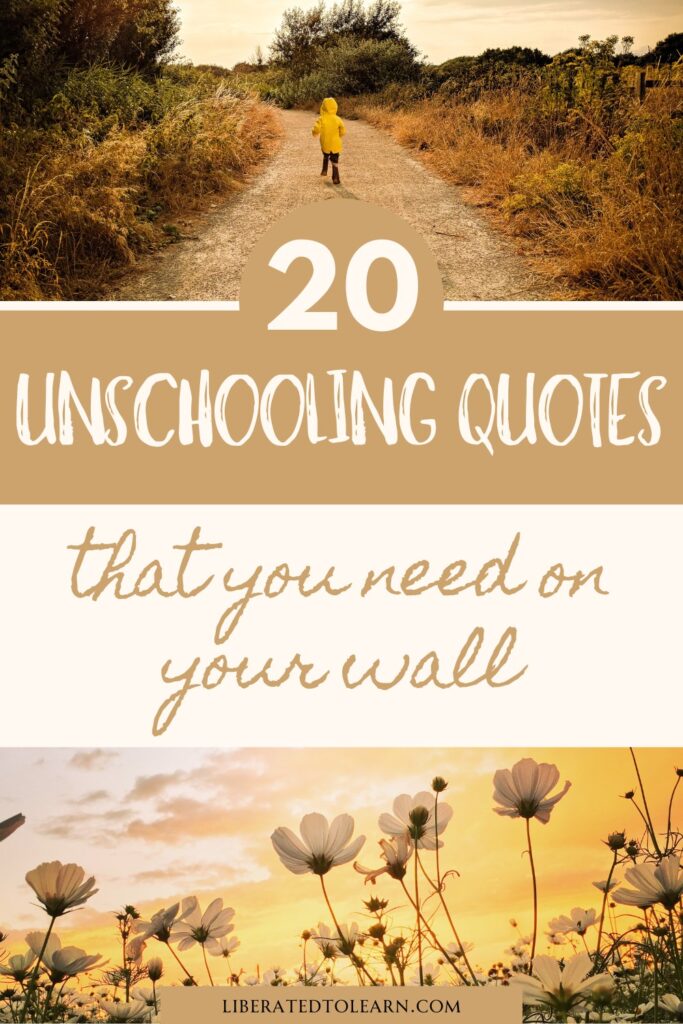
7 Steps to Unschooling
If unschooling is sounding like it’s your family’s educational calling, here are the key steps to guide you:
1. Learn about and understand unschooling
The first step to unschooling is understanding it. This means reading unschooling books, blog posts and forums, and finding out as much information as you can. When you have a clearer idea of what unschooling entails, you’ll feel more confident going into it.
2. Determine your family’s philosophy
Unschooling is a very unique approach, and it may or may not align with your family’s philosophy. First you have to reflect on your family’s values, lifestyle, and goals for your child’s education.
3. Deschool
If you’re unfamiliar with deschooling, it’s usually what most families do after deregistering their child from school and is the process of unlearning the formal school mindset and adjusting to the freedom of self-directed learning.
Learn all about deschooling here!
You may also be interested in: How to Unschool After You’ve Deschooled
4. Support your child’s interests
Take note of what your child is interested in, what engages them and makes them happy. Then you can actively support their interests by providing them relatable experiences and access to certain resources.
5. Join unschooling communities
A great way to start unschooling is to find your unschooling community and connect with other unschooling families. Whether it’s online or in your local area, you’ll find valuable support, advice, and social opportunities for both you and your child.
6. Set unschooling goals
When you start unschooling the best thing you can do is set goals. After all, goals keep you motivated and on track. You can think about what you want your children to achieve and once a goal is completed, your children will be encouraged to achieve the next one. Goals are also a great way of having something to aim towards and ensuring progress is made.
7. Self-reflect
Another step of unschooling which you don’t want to skip is self-reflection. Set time aside to reflect on what’s working and what’s not. Are your children enjoying what they’re doing? Is there anything they’d like to do differently? Once you’ve self-reflected as a family you’ll be able to make the necessary changes to improve your unschooling experience.
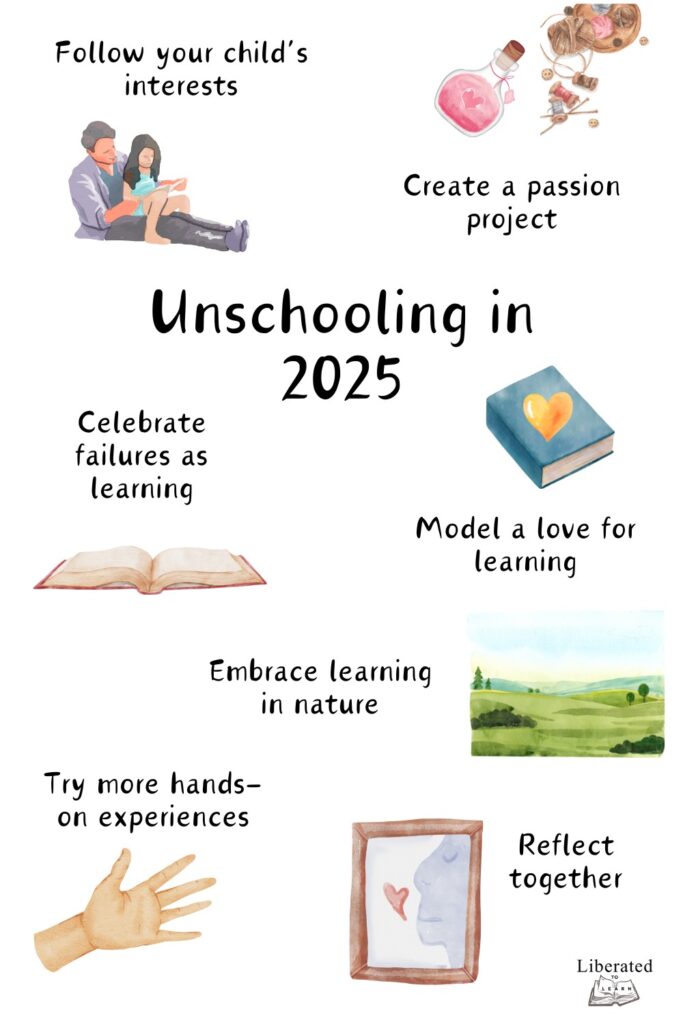
Why Do People Unschool?
There are a number of reasons why families choose to unschool and everyone’s choice is a personal one. Here are some common reasons why families choose to unschool:
For a personalised education
Every child is an individual with their own unique interests, strengths, goals, and learning styles — and unschooling allows them to discover every single one of these things. Because the learning is child-led, everything is more personal and easily adaptable if something isn’t working.
Dislike of traditional schooling
Many families choose unschooling because they do not agree with traditional schooling. It’s widely believed that school stifles creativity and independence, and ultimately the love for learning gets lost amongst grades, exams, and having to follow a strict curriculum.
For freedom and flexibility
Unschooling offers as much freedom and flexibility as a family could wish for. Want to travel? You can! Want to spend more time together? You can! Want to set your own routine? You can! The limits are for you to decide.
Aligns with a family’s beliefs and philosophy
Families often choose to unschool because it’s more than just an alternative way to educate their children — it’s also a lifestyle choice that aligns with their own beliefs and philosophy. For a lot of us, one of the stronger beliefs is that children should have the right to choose what they learn and discover a learning method that best suits them and their abilities.
For better mental health and well-being
There is far less pressure and often reduced stress and anxiety when unschooling because children aren’t forced to learn what they have little interest in or to do it in a certain way. They also don’t have the pressure of exams like they would in a traditional school, and there is the reduced risk of bullying and peer-pressure which significantly impacts mental health.
Benefits of Unschooling
1. Encourages a lifelong love of learning
Because unschooling encourages children to follow their own interests and make their own discoveries, they’re more likely to develop a genuine love for learning that will last a lifetime.
2. Children set their own pace
Children learn better when they’re able to go at their own pace because there’s no pressure to be at the same level as someone else. Instead of having the pace set for them, they discover it for themselves.
3. Children gain more confidence and independence
When a child is able to make their own decisions, they gain the confidence to choose what is right for them and have more confidence in their own abilities and strengths. Unschooled children also develop the independence to make personal choices without the involvement or influence of others.
4. Mistakes become valuable lessons
Unschooling encourages children to make mistakes because they can learn so much from them. Mistakes aren’t something to be avoided or ashamed of. Instead, they’re seen as something positive — a motivator to do better and try again.
5. More time for family bonding
The freedom that unschooling gives you means that you get to spend more time together as a family. Sharing experiences and learning together strengthens familial bonds and makes you appreciate being together.
6. Freedom and flexibility
People choose to unschool because of the freedom and flexibility and it’s one of the greatest benefits of unschooling too. Decisions such as where, how and when are all made as a family with the children’s best interests at heart. There’s little in the way of restrictions and life is more enjoyable when it’s not controlled.
Cons of Unschooling
1. It’s your responsibility
Although unschooling is child-led and encourages children to make their own decisions, it’s ultimately the parent’s responsibility to ensure that your child is still receiving a suitable education and benefiting from the choices that are being made. It’s important to aid children, make better suggestions and even redirect them when needed.
2. Children may struggle with a lack of structure
The freedom and flexibility of unschooling is great but some children may struggle without any structure in place. Of course you can have structure when unschooling but it puts more pressure on parents to ensure that every day is structured suitably for their children.
3. Self-motivation
Because children are encouraged to make their own educational decisions, at times they may lack self-motivation, be too relaxed, or make unambitious choices instead. This then puts pressure on parents to motivate their children and instil responsibility.
4. Potential gaps in education
Without the need to follow a curriculum, there’s the risk of having potential gaps in education. Children may not learn the necessary skills that they need in life if they’re not exposed to certain topics.
5. Legal scrutiny
Although unschooling is completely legal, parents may find themselves needing to prove to their local authority that their child is being provided a suitable education. The unschooling lifestyle may make this a little more difficult to prove, especially if your child favours a more active, hands-on way of learning rather than through academic methods.
What is Radical Unschooling?
Radical unschooling is unschooling extended to all areas of life and not just education. In radical unschooling, children have the freedom to make choices about not just their education, but also daily routines, such as bedtimes, meals, and screen time.
It’s believed that when practising radical unschooling children learn self-regulation and responsibility through natural consequences, rather than through imposed rules. This approach promotes complete autonomy and respects a child’s ability to make their own decisions.
What is the Difference Between Unschooling and Deschooling?
We like to say that unschooling is unlearning everything about a traditional schooling system and its methods and principles, and deschooling is departing from school to start unschooling or any other method of Home Education.
To elaborate, unschooling allows children to learn naturally through life experiences, without a structured curriculum or formal lessons. On the other hand, deschooling is the transitional process of adjusting from a formal, school-based mindset to a more relaxed, self-directed approach to learning. It often occurs when a child leaves a traditional school setting and needs time to unlearn rigid expectations and schedules, and rediscover their natural curiosity.
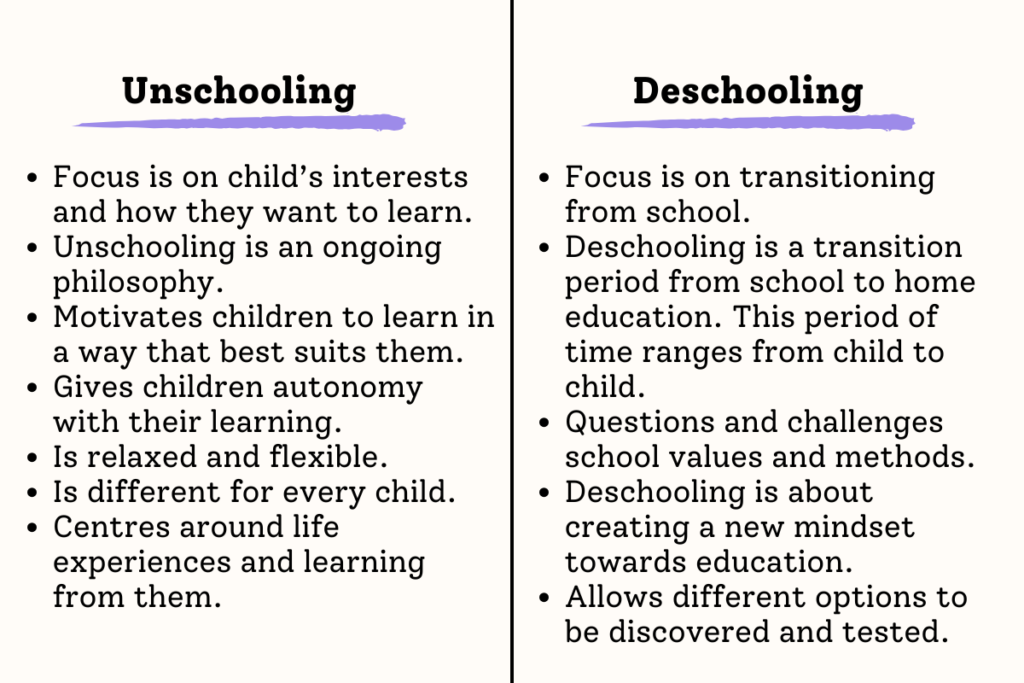
7 Unschooling Ideas
Here are some great unschooling ideas and activities to suggest to your child and try out.
1. Entrepreneurship
If your child has a particular passion or talent, help them explore entrepreneurial opportunities and support them in starting their own project. This can range from creating crafts to sell, to starting a small business venture or even freelance work (depending on their age).
Your child can learn about running a business and by actively doing so also learn valuable skills such as maths, marketing, budgeting, communication, and problem-solving.
2. Engage with technology
Technology is a great tool for creativity and learning. Using it is now almost essential in this ever growing digital world. You can teach your children how to use technology responsibly and creatively. There is a wealth of resources and platforms online to develop a child’s skills in whatever area they are most interested in. Understanding online safety and navigating information is also important and highly recommended.
3. Health and well-being
Teach your child about physical health and increase their awareness and knowledge of mental health. You can promote a healthy lifestyle and learn about nutrition, exercise, and overall wellness. Allow your child to experiment with preparing healthy meals, understanding their body, or even practising mindfulness and physical activities.
4. Outdoor exploration
We all know the benefits of being outdoors are huge as nature provides endless opportunities for experiential learning. Simple activities such as nature walks, camping trips, and gardening projects expose your child to different ecosystems and encourage them to learn about biology, environmental science, and develop a sense of wonder about the world.
5. Emotional intelligence
Emotional development is just as important as having academic skills, which is why focusing on self-awareness, empathy, and emotional regulation is hugely beneficial for children. You could introduce mindfulness techniques or journaling to help your child process emotions, build resilience, and handle frustration.
6. Critical thinking and problem-solving
When your child asks questions, instead of providing immediate answers, guide them toward finding the answers on their own. You could ask open-ended questions that stimulate deeper thought, such as “What do you think would happen if…?” or “How could we figure this out?” Or focus on activities that require problem-solving, such as puzzles, strategy games, and science experiments.
7. Volunteering
Volunteering isn’t just about community engagement, it teaches children to be responsible and empathetic towards other people. The skills learnt from volunteering can also be applied to future roles and help prepare children for employment.
Related: Unschooling Learning Ideas for January
Remember, unschooling is what you make of it. Every journey is different but every experience is just as valuable.
Tell us about your unschooling journey, especially if you’d like your story to be shared on our website! We’d love to hear from you!
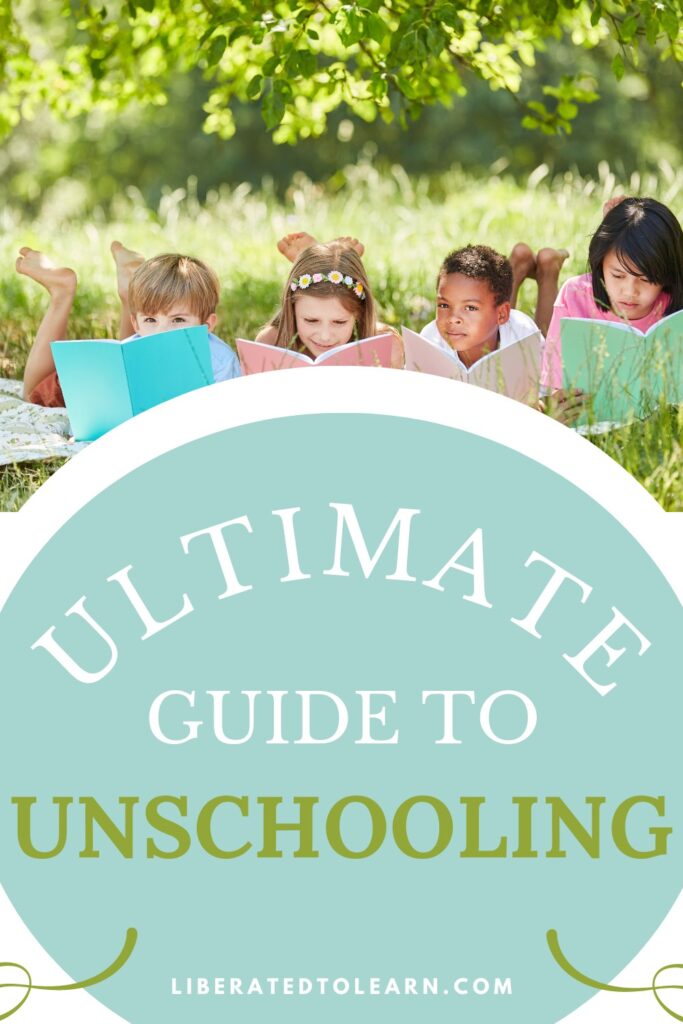
m@liberated
Want more from Liberated to Learn?
Subscribe to stay updated about new posts, resources and giveaways!





